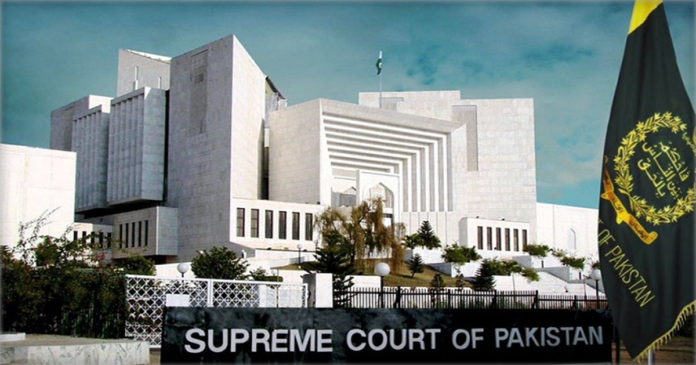On Wednesday, the Supreme Court ordered that they must hold elections for the Khyber Pakhtunkhwa (KP) and Punjab assemblies within 90 days.
Chief Justice Umar Ata Bandial made public the directive issued by the Supreme Court in its suo motu notice decision today
The five-member panel led by Chief Justice Pandial, including Justices Munib Akhtar, Muhammad Ali Mazhar, Shah, and Mandokhail, reserved the judgment after holding proceedings over two days, from Monday to Tuesday.
The bench ruled in favour of the petitioners in the case by a three to two split decision, despite the fact that two of the judges raised an issue with the admissibility of the pleas. Judge Jamal Mandokhail and Justice Mansoor Ali Shah are the opposing members who dissented from the majority decision.
In rendering its decision, the SC noted that the Constitution had set out 60 and 90 days for holding elections following the dissolution of assemblies and that the general election process was unique.
CJP Bandial stated that they must hold elections within 90 days of the assembly’s dissolution.
The court ruled that the Punjab Assembly disbanded independently after 48 hours because the governor failed to sign the summary. On the other hand, the KP Legislature was dissolved only after the governor signed the summary.
The president, governors, or the Election Commission of Pakistan (ECP) set the date if the provincial assemblies are dissolving. The top court had taken suo motu notice of this issue.
Once the parties to the case finished their arguments on Tuesday at around 6:30 p.m. following a two-day hearing, the court reserved its decision.
“SC requests agreement on election date from ruling party and opposition”
The top court requested the Pakistan Tehreek-e-Insaf (PTI) and the ruling alliance to agree on a mutual date for the polls, but the counsel for the Pakistan Peoples Party (PPP) informed the court that political parties are not responsible for setting election dates.
Nevertheless, the counsel for the coalition partners required more time to discuss with one another, therefore the Pakistan Muslim League-Nawaz (PML-N) urged the court to prolong the proceedings.
Following President Arif Alvi’s announcement of the election schedule, the SC took the suo motu notice of what appeared to be a delay in the two assemblies’ elections on February 23. The government sharply criticized this action.
The CJP stated that they issued the suo motu notice to determine who had the constitutional authority to set the election date and at what time.
It is significant to note that four justices had written opposing comments during the initial hearing on February 23 and objected to the bench’s makeup and suo motu authority under Article 184(3).
In order to hear the matter, Justices Jamal Khan Mandokhail, Mansoor Ali Shah, Yahya Afridi, and Athar Minallah asked the Chief Justice to appoint a new bench.
Justices Ijazul Ahsan, Afridi, Sayyed Mazahar Ali Akbar Naqvi, and Minallah also distanced themselves from the case.
final hearing
Judge Mandokhail made a comment during the hearing on Tuesday that Article 48 of the Constitution provides that the president must rely on the counsel of the government for all actions and decisions.
CJP Bandial echoed Judge Mandokhail’s statement, stating that they would use the advice provided under Article 48 to determine the timing of the elections.
Salman Akram Raja, President Arif Alvi’s attorney, also stated that his client has chosen to reverse his recommendation for the general elections in Khyber Pakhtunkhwa because the province’s governor dissolved the assembly, in contrast to Punjab, where the governor did not.
The president has declared that the governor has the authority to set the election date, according to Raja.
Raja acknowledged that the president had exceeded his legal authority and had no right to announce the date of the KP elections, but he said that President Alvi had announced the date in accordance with the law and the constitution.

